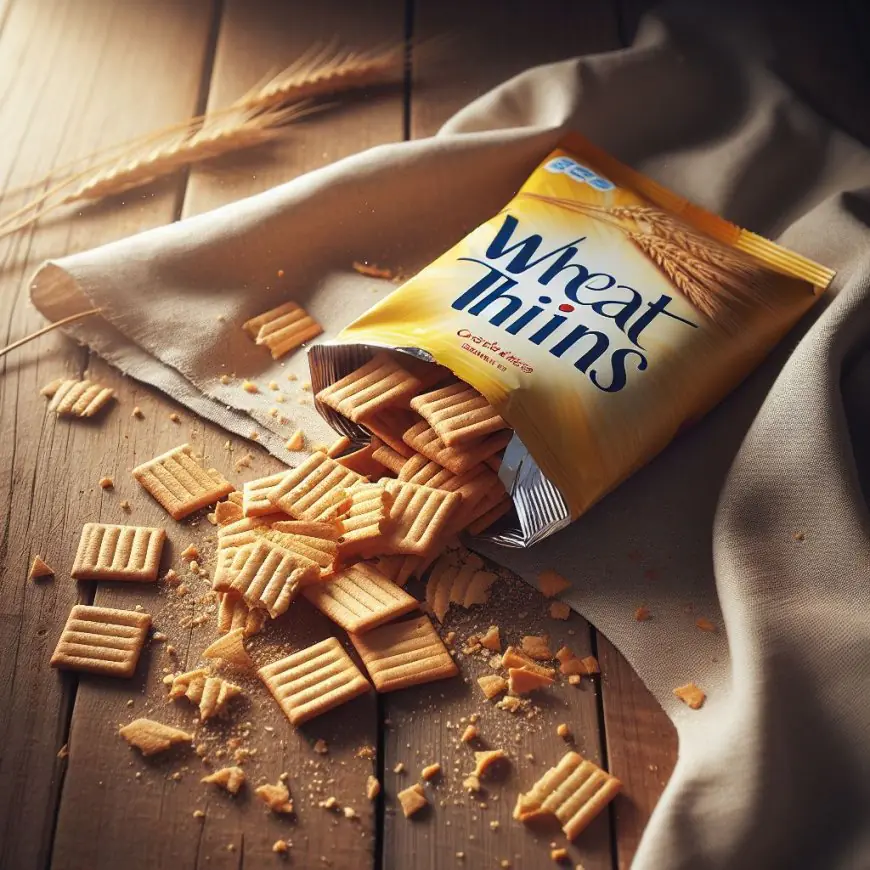Wheat Thins: A Delectable Crunchy Snack
Satisfy your snack cravings with Wheat Thins. Discover the irresistible crunch and savory flavor of these whole grain wheat crackers. Perfect for snacking or pairing with your favorite dips and cheeses, Wheat Thins are a delicious choice for any occasion.

In the realm of savory snacks, Wheat Thins stand out as a beloved choice among consumers. These crispy, wheat-based crackers have earned a reputation for their satisfying crunch and versatile flavor profiles. In this article, we delve into the fascinating world of Wheat Thins, exploring their history, nutritional value, production process, varieties, health benefits, and much more.
History and Origins
Wheat Thins were first introduced to the market in 1947 by Nabisco, a subsidiary of Mondelez International. Originally marketed as a healthier alternative to traditional fried snacks, Wheat Thins quickly gained popularity due to their crispy texture and savory taste. Over the years, the brand has expanded its product line to include various flavors and varieties to cater to diverse consumer preferences.
Calories and Macronutrients
One serving of Wheat Thins typically contains around 140 calories, making them a relatively low-calorie snack option. These crackers are primarily composed of carbohydrates, with a moderate amount of fat and protein.
Vitamins and Minerals
Wheat Thins also provide essential vitamins and minerals, including iron, calcium, and B vitamins. However, it's important to note that they may not be a significant source of these nutrients due to their relatively small serving size.
Ingredients Used
The main ingredients in Wheat Thins include whole grain wheat flour, vegetable oil, sugar, and salt. These simple yet flavorful ingredients contribute to the distinctive taste and texture of the crackers.
Production Process
The production process for Wheat Thins involves mixing the ingredients, rolling out the dough, cutting it into thin squares, and baking them until crispy. This process ensures consistency in flavor and texture while maintaining the integrity of the whole grain wheat flour.
Varieties and Flavors
Wheat Thins are available in a variety of flavors, ranging from classic to bold and spicy. Some popular varieties include Original, Reduced Fat, Ranch, and Spicy Buffalo. These diverse options allow consumers to enjoy Wheat Thins according to their taste preferences.
Packaging and Marketing
Wheat Thins are typically packaged in cardboard boxes or resealable bags to maintain freshness. The packaging often features vibrant colors and eye-catching designs to attract consumers' attention on store shelves.
Health Benefits
Despite being a processed snack, Wheat Thins offer some nutritional benefits. They are a good source of whole grains and fiber, which can promote digestive health and satiety. Additionally, their low calorie and fat content make them a suitable option for individuals looking to manage their weight.
Potential Drawbacks
While Wheat Thins can be part of a balanced diet, they may not be suitable for everyone. Some varieties may contain high levels of sodium or added sugars, which could be a concern for individuals with certain dietary restrictions or health conditions.
Usage and Consumption
Wheat Thins are commonly enjoyed as a standalone snack or paired with dips, cheeses, or spreads. They are also used as ingredients in various recipes, such as crumbled toppings for salads or crusts for savory pies.
Recipes and Creative Uses
From homemade party mixes to inventive appetizers, Wheat Thins can be incorporated into a wide range of recipes. Their crunchy texture and neutral flavor make them a versatile ingredient in both sweet and savory dishes.
Comparison with Other Snacks
Compared to other snack options, Wheat Thins offer a unique combination of flavor, texture, and nutritional value. While they may not be as indulgent as fried chips or as wholesome as fresh fruit, they provide a satisfying crunch without excessive calories or unhealthy additives.
Sustainability and Ethical Practices
As consumers become more conscious of environmental and ethical issues, companies like Nabisco are taking steps to improve their sustainability practices. This includes sourcing ingredients responsibly, reducing waste, and supporting ethical labor practices throughout the supply chain.
Popularity and Consumer Feedback
Wheat Thins continue to enjoy widespread popularity among consumers of all ages. Many appreciate their convenient packaging, satisfying crunch, and versatile flavor options. However, some may have concerns about their nutritional content or ingredient list.
Conclusion
Wheat Thins are more than just a snack—they're a crunchy, flavorful experience that has stood the test of time. Whether enjoyed on their own or incorporated into creative recipes, these beloved crackers offer a satisfying indulgence for snack lovers everywhere.
FAQs
Are Wheat Thins suitable for individuals with gluten sensitivities?
While Wheat Thins contain wheat flour, Nabisco offers gluten-free alternatives for those with gluten sensitivities or allergies.
Are Wheat Thins vegan-friendly?
Most varieties of Wheat Thins are vegan-friendly, but it's always best to check the ingredient list for any animal-derived ingredients.
Can Wheat Thins be stored for an extended period?
Wheat Thins can be stored in a cool, dry place for several months, but they are best consumed within the recommended expiration date for optimal freshness.
Are there any allergens present in Wheat Thins?
Wheat Thins contain wheat and may also come into contact with soy and milk during the manufacturing process, so individuals with allergies to these ingredients should exercise caution.
What are some creative ways to enjoy Wheat Thins?
Wheat Thins can be paired with a variety of toppings and spreads, such as hummus, guacamole, or cheese, to create delicious appetizers or snacks.
What's Your Reaction?

























































































